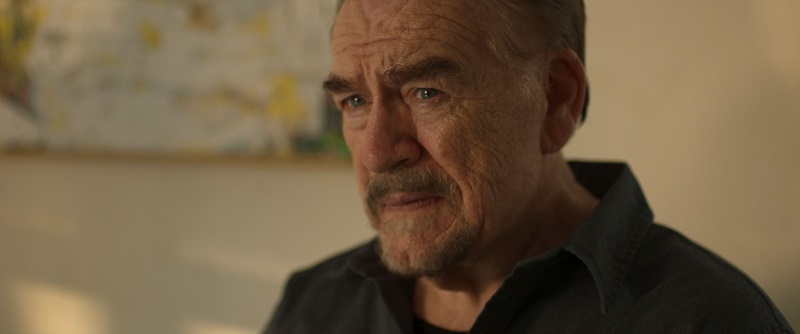Prisoner’s Daughter (Hardwicke, 2022)
I recommend Prisoner’s Daughter and rated it “fresh” on Rotten Tomatoes. That doesn’t have to be the lede of every review, but I start with it for three reasons. First, the film is in that 50% range at the aforementioned aggregator site, meaning critics are nearly evenly divided. Second, I think the film probably plays better in an in-home screening environment than perhaps it did at SXSW or other festivals. where the comparison points are award-bait and headliners. Mostly I mention it, though, because this review does contain some reservations, and that can always come across as undercutting praise rather than mediating it.
First the good, then. Brian Cox and Kate Beckinsale are outstanding in breathing life into some relatively stock characters. Cox is Max, a prisoner with terminal cancer who if offered compassionate parole so long as his daughter agrees to let him stay with her. Beckinsale is Maxine, the adult child who is struggling to raise an epileptic and bullied son, a dead-end job, and a deadbeat addict of an ex-husband.
This basic scenario — estranged parent and adult child confronting the past is well-trod melodramatic ground. Cox and Beckinsale make the most of it by not leaning into the overly expository dialogue. It’s not a coincidence that the film’s best scene — of Cox alone in the house for the first time after his release — is silent. That objects and situations are seen in a new light when one is older or dying doesn’t have to be said. It is communicated through pauses, by holding a beat a little longer as Max smells the flowers or takes stock of his daughter’s living conditions.
Beckinsale is saddled with more on-the-nose speeches, yet she is able to give Maxine a credible arc. Her anger doesn’t go away, but she is also smart enough to admit that her father’s presence has a positive impact on her son. That she is smart enough to care about that more than her own anger is evidenced by her decisions as much as her actions.
Beckinsale and Cox are so good, in fact, that their qualities make the film’s flaws grate more than they would in an overall flop. The scenario carefully constructs Maxine’s problems in such a way that Max is not merely willing but uniquely equipped to help her. Can’t afford her son’s medications? He has money accrued in prison that he can hand over on arrival? Underwater on the house? A mob connection with a debt sends over a construction crew to build an addition that Max can live in and Maxine can rent after he has died. Grandkid being bullied at school? Max happens to have a friend who runs a boxing gym and owes him a favor. At a certain point, it doesn’t seem like growth or reconciliation for Maxine to concede that Max’s presence is a net plus, because prison apparently affords Max the ability to accrue compound interest on all the favors owed him before he goes in.
The film’s ending doesn’t quite land either. Once the film sets up a situation that Max can’t simply fix with a single act of violence, he finds a fix that the film appears to unambigiously endorse even though the thrust of the story suggests that both daughter and grandson would rather have his continued, albeit abbreviated, presence in their lives than what they get out of his final decision.
That being said, the film is still worth a watch, especially as an actor’s showpiece. Plus, I tend to think we should all go see any Catherine Hardwicke movie on general principles to remind Hollywood that we would like to see more of her movies.
Prisoner’s Daughter is available through most VOD platforms beginning July 18, 2023.

